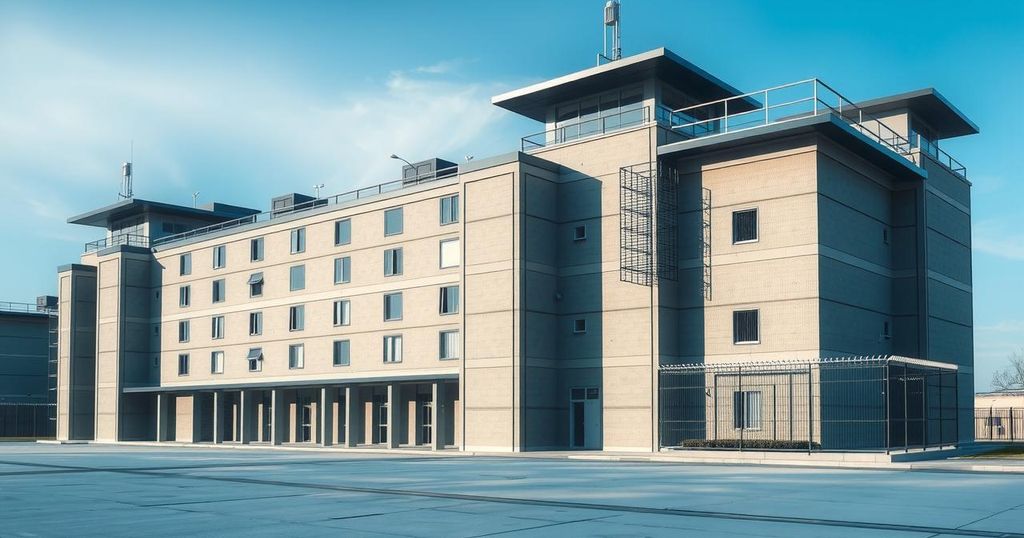US and El Salvador Forge $6 Million Agreement for Gang Member Detainment

El Salvador has accepted 238 Venezuelan gang members under a controversial $6 million agreement with the U.S. for their incarceration. This innovative model for international detention raises concerns about human rights and legal implications. The CECOT facility, housing the detainees, plays a crucial role in President Bukele’s approach to gang violence and offers a potential revenue stream for the government.
El Salvador has received 238 alleged members of Venezuela’s Tren de Aragua gang and 23 MS-13 members from the United States, marking a significant development in international incarceration practices. This unprecedented cross-border transfer of prisoners is taking place at the Central American country’s maximum-security Terrorism Confinement Centre (CECOT), which has been confirmed by officials from both nations.
The arrangement, discussed during U.S. Secretary of State Marco Rubio’s recent visit, involves a payment of $6 million from the U.S. to El Salvador for a one-year term to detain approximately 300 inmates, with options for renewal. Such income is crucial for El Salvador, which is grappling with a staggering public debt of $31 billion, constituting 82% of its GDP, and President Nayib Bukele views this as a means to make the prison system self-sustaining.
Each inmate’s confinement under this deal reportedly costs around $20,000 annually. Furthermore, a U.S. State Department document indicates that an additional allocation of $15 million may be entrusted to El Salvador to accommodate more gang members, thereby enhancing the scope of this agreement.
Despite facing last-minute legal challenges in the U.S., the deportations commenced as planned. District Judge James E. Boasberg issued a temporary order to suspend the deportations; however, they proceeded, prompting the White House to clarify that deportees were no longer on U.S. soil when the order was issued.
Press Secretary Karoline Leavitt emphasized that, “A single judge in a single city cannot direct the movements of an aircraft carrier full of foreign alien terrorists who were physically expelled from U.S. soil.”
This deportation protocol is executed under the 1798 Alien Enemies Act, a wartime measure that has not been employed since World War II. President Donald Trump invoked this law, asserting that the Venezuelan Tren de Aragua gang’s actions constituted an invasion of U.S. territory, allowing swift deportations without standard legal protections.
The CECOT, a $70 million facility inaugurated in 2023, has a capacity for 40,000 inmates and serves as a primary component of this cross-border initiative. El Salvador is promoting this facility to foreign governments, particularly as the U.S. allocates considerable resources—approximately $80.7 billion annually for public correctional facilities.
However, the detention facility has drawn criticism from human rights entities, such as Cristosal, which reports inadequate conditions, such as bans on visitations and outdoor access, and insufficient rehabilitation programs. The Inter-American Commission on Human Rights (IACHR) has voiced concerns regarding the state of prisons under President Bukele’s administration, citing 261 documented deaths.
Family members of deported individuals have contested the criminal classifications of their relatives, asserting that many entered U.S. custody due to dire economic circumstances rather than criminal intentions. One relative remarked on social media, “Many turned themselves in to U.S. authorities because they could no longer sustain their economic situation there, but they are not criminals.”
Devastating denunciations from Venezuela’s government characterized the deportations as
In summary, the establishment of a $6 million agreement between the United States and El Salvador to house alleged gang members underscores a significant shift in international correctional practices. With this pioneering arrangement, El Salvador aims to generate much-needed revenue while the U.S. addresses challenges in its prison system and immigration issues. However, the development raises pertinent questions regarding human rights and the long-term implications of outsourcing incarceration, warranting scrutiny from advocates and policymakers alike.
Original Source: www.intellinews.com








